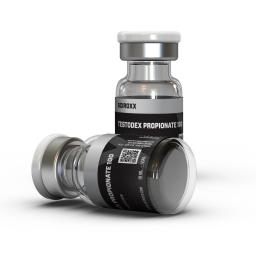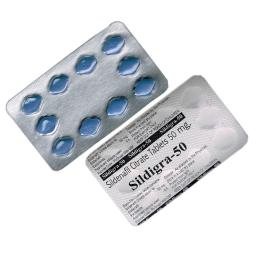Midlife and Menopause
 There is little doubt that hot flushes and vaginal changes can be directly linked to the hormonal changes of menopause. What about things like depression, anxiety, mood swings and low libido? Are these related to the hormonal changes of menopause or is there more to it than that?
There is little doubt that hot flushes and vaginal changes can be directly linked to the hormonal changes of menopause. What about things like depression, anxiety, mood swings and low libido? Are these related to the hormonal changes of menopause or is there more to it than that?
We are now starting to understand just how much the experience of menopause is influenced by what else is happening in a woman’s life at the same time as the physical changes.
There are many psychological, social and cultural factors that can also influence our experience of menopause. These may include:
- life experience and situation
- personality
- previous mood problems
- roles
- attitude to ageing and menopause
- relationships with a partner
- family and friends
- sexual function
- body image
- social and cultural expectations.
It is helpful consider how these factors may impact on your experience of menopause. At the end of each section in this fact sheet you will find some questions that may help you to do this.
Mood
Many women say they are depressed, anxious, irritable and moody because of menopause. The hormone changes of menopause do not appear to be directly responsible for clinical depression and anxiety, but instead, seem to cause mood swings and irritability, which can make life difficult in itself. The exceptions to this are for women who experience a surgical or early menopause, where mood may be more significantly affected. Women in the perimenopausal stage may experience more intense mood swings because of hormone changes, but this is not necessarily clinical depression. If you are depressed or suffering from anxiety then this is far more likely to be a result of other experiences. Perhaps you have experienced a prior depression or anxiety, have a negative attitude to ageing and menopause, have lots of stress in your life, smoke or maybe you don’t exercise.
Have you experienced depression or anxiety before?
Do you have other stresses in your life at the moment?
There are many treatments that are effective in alleviating the symptoms of depression and anxiety. It is important that you consult with your health practitioner or a psychologist if you are experiencing any significant or persistent changes in mood.
Mood and Domino Effects
Often the physical symptoms experienced with menopause (like hot flushes) impact on sleep which, in turn, makes you tired and affects motivation and mood. The physical changes associated with hot flushes can sometimes feel the same as anxiety or panic attacks. It can be helpful to keep a mood and menopause diary to track your symptoms, to distinguish between physical and emotional symptoms, and to understand the patterns between these symptoms.
Midlife and Ageing
Some women see menopause as a time of transition, some look forward to the next stage of their life, and other women have negative feelings and may interpret it as a time of crisis. The attitude you have to this time of your life will influence your coping, your emotional wellbeing and your experience of mood disorders, like depression and anxiety. A negative attitude to menopause and ageing can result in more menopausal symptoms, which are often more intense.
What is your attitude to ageing and menopause?
Role and Purpose in Life
Women who believe their roles in life to be of importance and value (particularly as they relate to family, relationships and career) have higher levels of wellbeing, feel better about their health and often have less intense menopausal symptoms. Having roles in your life that you feel good about helps you to feel valued and worthwhile.
What roles do you have and do you perceive these roles as important?
Interpersonal Relationships
Partners
If a woman perceives there are significant problems within her relationship she is also more likely to report symptoms of low mood, regardless of menopausal stage. We know that widowed, separated and divorced women have higher rates of depression than women in relationships, regardless of whether they are menopausal.
If you are in a relationship, how do you feel about this relationship?
Does your relationship impact on your experience of menopause, or does menopause impact on your relationship?
If you are experiencing problems in your relationship it may be helpful to seek some professional counselling.
Children
Menopause means the end of fertility. For some women this is perceived as positive with no more concerns about contraception. For others, however, menopause is seen as the end to their ability to have children, which can be distressing. In our society today, many women who reach menopause are likely to have children of differing ages and stages, and up to thirty per cent of women who reach menopause have no children.
How do you feel about your relationship with your children?
If you don’t have children, has menopause caused you to reflect on your circumstances?
Friends and Social Support
If we have quality friendships and a supportive network of friends we are less likely to be depressed and more likely to adapt positively to the changes of menopause. Social isolation, lack of social support and depression are significant risk factors that contribute to coronary heart disease.
Do you have friends who you turn to, and are there for you, when you need support?
If not, perhaps you might like to think about joining, or starting, a group, or taking an adult education class to meet some people. Sometimes we don’t turn to our friends as we worry we might burden them, when really they may feel good knowing they can help and support us.
Libido
Libido, or sexual desire, is influenced by a range of factors, including menopause. Hormone changes, illness and medications will impact on desire. Other factors, such as previous sexual experience, relationship status and satisfaction, attitude, self-esteem, body image, personality and mood can also influence how much a woman wants to have sex. Many women present to their health practitioner around the time of menopause, describing problems with their libido. If menopause has made sex painful, seek help to address this problem.
Are there other factors which may be impacting on your sexual libido which you may need to address also?
The good news is there is help available to treat many libido-related concerns.
Body Image
Physical changes to the body, brought on by menopause, include changes in body shape, with weight shifting from the hips to the central part of the body, drier skin, decreased muscle tone, hot flushes and for some, osteoporosis. Some women talk about losing control of the body they always thought they could rely on. Other women discuss how wonderful it is to get to an age and stage where they don’t have to spend so much time worrying about their body.
What do you think and feel about your body at this time of your life?
If body image is a problem it may be helpful to discuss these concerns with your health practitioner.
Cultural and Social Influences
Some cultures hold older women in high esteem and they are seen as wise and respected. Women in a western society often perceive that as they age they become invisible and their contributions and opinions are seen as less relevant.
Are there particular beliefs that you think might be related to your social and cultural background, which influence how you see your experience of menopause?
Summary
Physical, psychological, cultural and social factors can all impact on the experience of menopause. Who you are, what your life experiences have been, and how you feel about your life, will all influence the way you experience menopause. It is helpful to understand how you feel about the different areas of your life, along with the physical changes of menopause.
This information offers suggestions only and shouldn’t replace the help and support of qualified health practitioners.
Please seek help, information and guidance in any areas of your life that you are concerned about.
Menopause need not be a difficult time of your life. Some of the influences explained here may, or may not, affect you.
Take action, seek help and ensure you are in control.
Best Steroid Products on Sale
Testodex Propionate 100
|
Enantat 250
|
Durabolin 500 (5ml)
|


